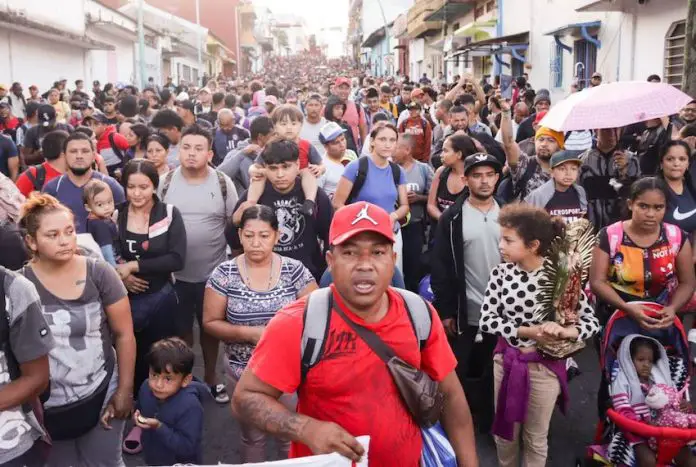United States President-elect Donald Trump confirmed on Monday that he plans to use the U.S. military to carry out his proposed mass deportation operation, an initiative that could result in millions of immigrants being sent to Mexico.
On his social media platform Truth Social, Trump shared a Nov. 8 post by the president of the conservative group Judicial Watch, Tom Fitton, who, citing “reports,” wrote that the incoming Trump administration is “prepared to declare a national emergency and will use military assets to reverse the Biden invasion through a mass deportation program.”
Above the post he shared on his personal account in the early hours of Monday morning, Trump wrote: “TRUE!!!”
The former and soon-to-be president of the United States stated during the presidential election campaign that he planned to carry out “the largest deportation operation in American history,” but until Monday he hadn’t indicated that he would use the military to execute it.
Reuters reported earlier this month that Trump was “expected to mobilize agencies across the U.S. government to help him deport record numbers of immigrants.”
As president, Trump will have the authority to declare a national emergency to support his deportation operation, thus “unlocking standby powers that include redirecting funds lawmakers had appropriated for other purposes,” The New York Times reported.
“During his first term, … Mr. Trump invoked this power to spend more on a border wall than Congress had been willing to authorize,” the newspaper said.
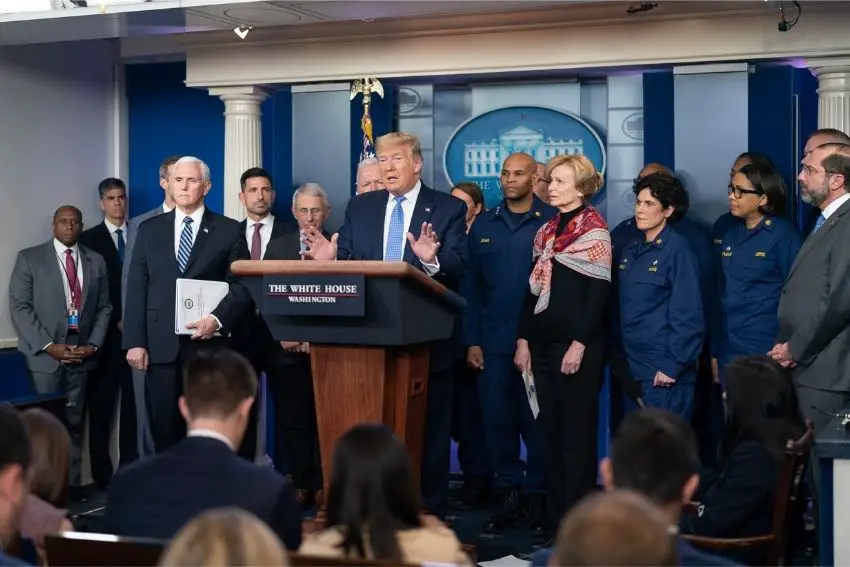
The Times also reported that “one major impediment to the vast deportation operation that the Trump team has promised in his second term is that Immigration and Customs Enforcement, or ICE, lacks the space to hold a significantly larger number of detainees than it currently does.”
However, it noted that Stephen Miller, Trump’s top immigration policy adviser, said in late 2023 that military funds would be used to build “vast holding facilities that would function as staging centers” for immigrants as their cases progressed and they waited to be flown to other countries.
The news website Axios reported that “Trump’s mass deportations are expected to impact roughly 20 million families” across the United States.
There are an estimated 11 million undocumented immigrants living in the United States, a significant number of whom are Mexican. Former foreign affairs minister and current Environment Minister Alicia Bárcena said in February that there were 5.3 million undocumented Mexicans living in the United States.
In addition to Mexicans, the United States could attempt to deport nationals of other countries, such as Venezuelans, Nicaraguans and Cubans, to Mexico.
Citizens of those nations “are sometimes unable to be deported to their origin countries for diplomatic reasons,” The New York Times reported.
Mexico ‘must be ready’ for mass deportations, but is it?
Mariana Aparicio Ramírez, a National Autonomous University (UNAM) academic and member of the Observatory of the Mexico-United States Binational Relationship, said in an interview with the newspaper El Financiero that “Mexico must be ready for arrests [of immigrants in the United States] and the mass return of Mexicans and other latinos.”
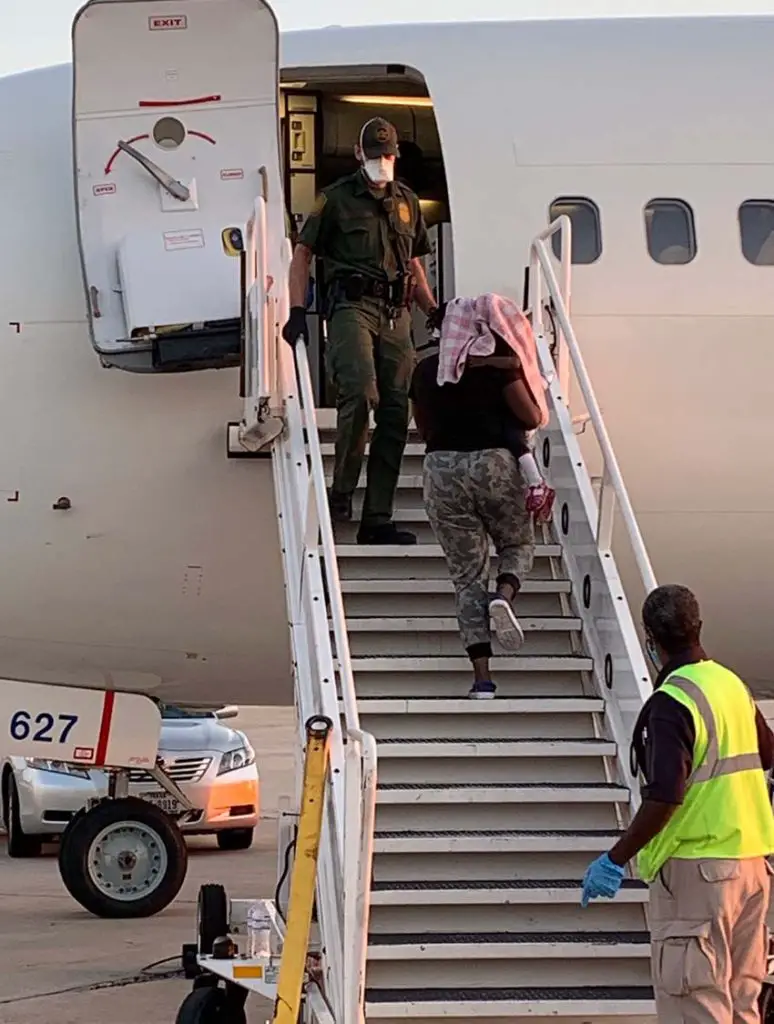
“Trump has the support of the citizens and that means that what is politically incorrect can be politically viable,” she said.
President Claudia Sheinbaum has pledged to “defend” Mexican migrants at risk of deportation, and advised them to seek advice or assistance at Mexican consulates in the United States.
Sheinbaum, who spoke to Trump by telephone two days after his Nov. 5 election victory, hopes that Mexican officials can meet with the incoming president’s transition team before he takes office on Jan. 20 to put forward a case against mass deportations.
The United States economy would inevitably suffer from the deportation of a large number of workers, a point Mexican officials would likely raise with members of Trump’s team.
Nevertheless, it appears likely that Mexico will receive a significant number of deportees during Trump’s second term as president, if not the millions he has promised to expel.
As Mexico News Daily reported earlier this month in an article on what a second Trump presidency will mean for Mexico, the Mexican economy — currently slowing — could struggle to provide jobs for large numbers of deportees who suddenly find themselves in Mexico after being uprooted from their lives in the U.S.
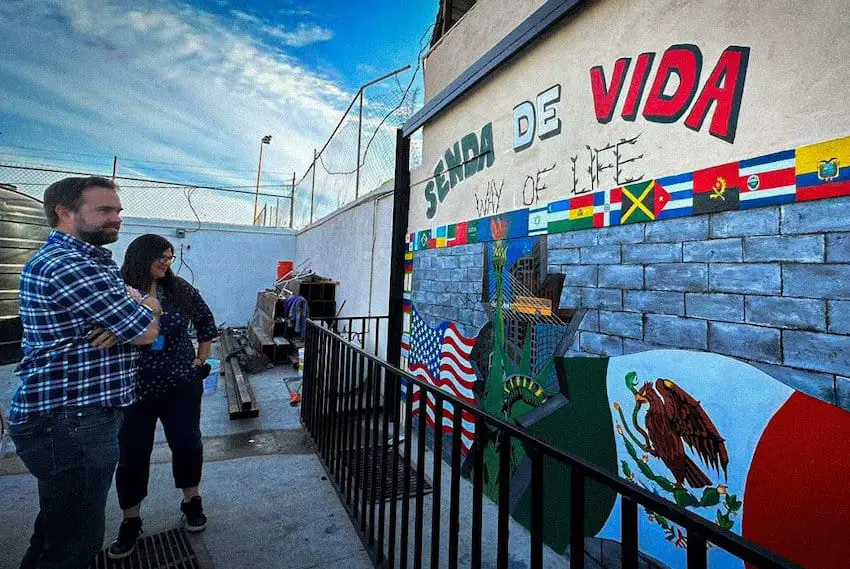
The Washington Post reported last week that migrant advocates in Mexico “are alarmed at what’s coming,” noting that they have said that “sending millions of jobless Mexicans back to towns they left years ago could create chaos in areas already suffering from poverty and organized crime.”
The Post spoke to two men who run migrant shelters on the Mexico-U.S. border for an article it headlined “Trump promised mass deportations. Mexico isn’t ready.”
“Neither the shelters nor the border area nor Mexico are ready for this,” Héctor Silva, a Protestant pastor who runs the Senda de Vida migrant shelter in Reynosa, Tamaulipas, told the Post.
Migrant shelters in Mexico’s border cities already struggle to accommodate migrants who make the long and dangerous journey through the country in their attempt to reach the United States.
Francisco Gallardo, a Catholic priest who runs the Casa del Migrante shelter in Matamoros, another border city in Tamaulipas, told the Post that “no one is prepared for deportations” of the magnitude Trump has spoken about.
“Neither the governments nor the civil society organizations,” he said.
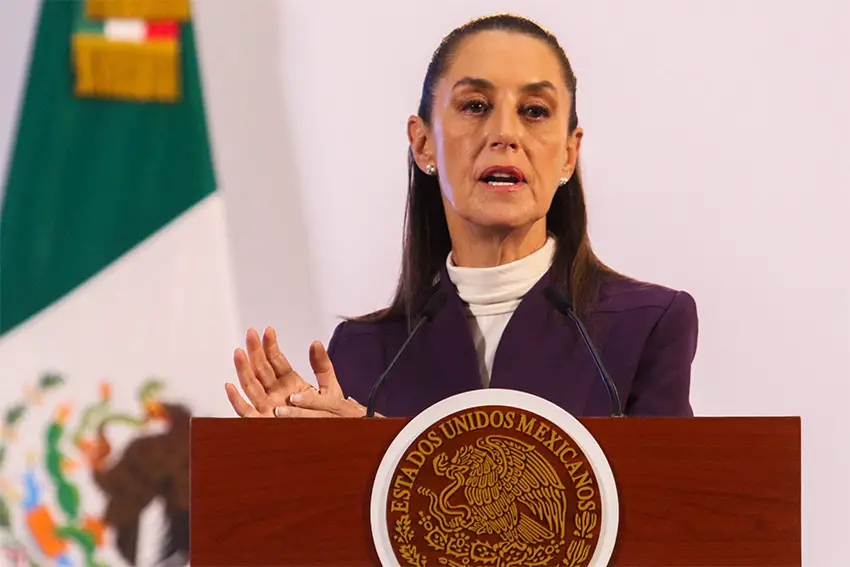
Adam Isacson, a migration analyst and director for defense oversight at the Washington Office on Latin America (WOLA), said that deportees to Mexico “will be thrown into a new kind of poverty” because they won’t be able to find jobs with wages comparable to those they earned in the United States.
That situation “will make them more desperate,” he said.
Deportees could even be tempted to work for organized crime groups in Mexico, one of the largest employers in the country, according to a 2023 study.
One person who is less concerned about Mexico’s capacity (or lack thereof) to absorb large numbers of deportees is Arturo Rocha, a former senior immigration official in Mexico.
“We are prepared to receive large numbers; we have done this before,” he told the Post. “But the key question is, how massive will massive deportations be?”
Sheinbaum, who also faces the task of defusing Trump’s tariff threats, appears optimistic — or at least hopeful — that the number of immigrants deported won’t be as high as the incoming U.S. president has said it will be.
Asked last week about the potential impact of deportations on remittances to Mexico, Sheinbaum simply said, “We hope there is no impact,” i.e. that no, or virtually no, Mexican immigrants are deported.
For his part, Trump’s incoming “border czar” Thomas Homan said in October that deportations during the second Trump administration wouldn’t be “a mass sweep of neighborhoods” to detain undocumented immigrants.
“It’s not going to be building concentration camps. I’ve read it all. It’s ridiculous. It’ll be concentrated. They’ll be targeted arrests,” he said.
With reports from Axios, The New York Times, El Financiero and The Washington Post
